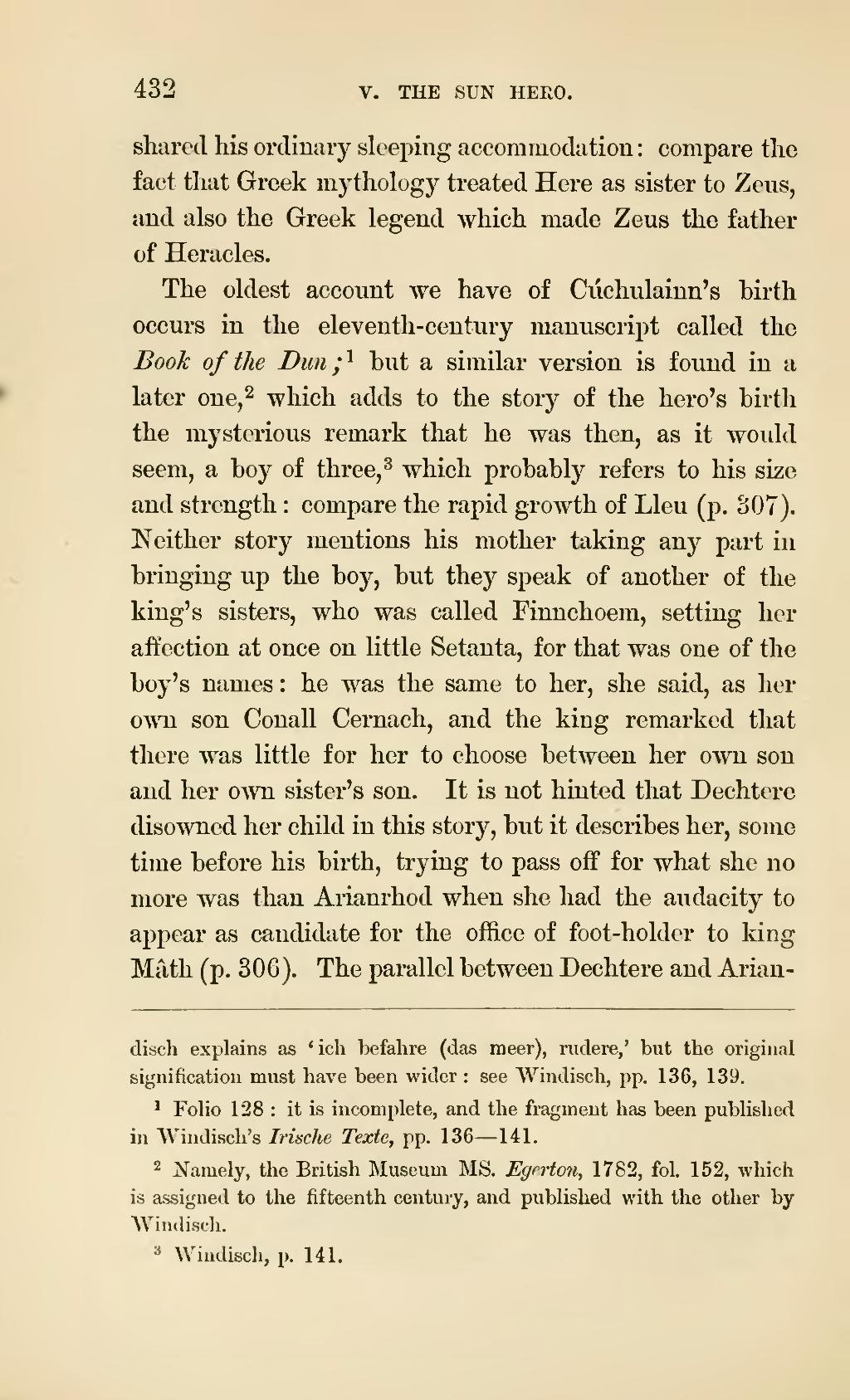shared his ordinary sleeping accommodation: compare the fact that Greek mythology treated Here as sister to Zeus, and also the Greek legend which made Zeus the father of Heracles.
The oldest account we have of Cúchulainn's birth occurs in the eleventh-century manuscript called the Book of the Dun;[1] but a similar version is found in a later one,[2] which adds to the story of the hero's birth the mysterious remark that he was then, as it would seem, a boy of three,[3] which probably refers to his size and strength: compare the rapid growth of Lleu (p. 307). Neither story mentions his mother taking any part in bringing up the boy, but they speak of another of the king's sisters, who was called Finnchoem, setting her affection at once on little Setanta, for that was one of the boy's names: he was the same to her, she said, as her own son Conall Cernach, and the king remarked that there was little for her to choose between her own son and her own sister's son. It is not hinted that Dechtere disowned her child in this story, but it describes her, some time before his birth, trying to pass off for what she no more was than Arianrhod when she had the audacity to appear as candidate for the office of foot-holder to king Mâth (p. 306). The parallel between Dechtere and Arian-
- ↑ Folio 128: it is incomplete, and the fragment has been published in Windisch's Irische Texte, pp. 136—141.
- ↑ Namely, the British Museum MS. Egerton, 1782, fol. 152, which is assigned to the fifteenth century, and published with the other by Windisch.
- ↑ Windisch, p. 141.
disch explains as 'ich befahre (das meer), rudere,' but the original signification must have been wider: see Windisch, pp. 136, 139.
